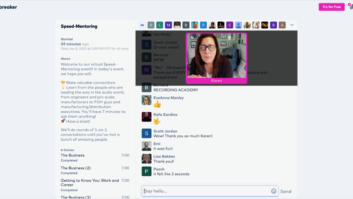Precision Mastering, based in Hollywood, Calif., is celebrating 20 years as one of the top mastering houses in the industry. Founded in 1979 as Precision Lacquer by Larry Emerine (who had worked as chief engineer at Richard Perry’s Studio 55), the facility has seen an incredible array of talent come through its doors, including such “name” acts as Bob Dylan, Fleetwood Mac, Alice in Chains, Eurythmics, the Rolling Stones, Pink Floyd, Beck, Roy Orbison, Nirvana, Red Hot Chili Peppers, Barenaked Ladies, Rod Stewart, Frank Zappa, Stevie Wonder, Tom Petty, Prince, Kiss, Stone Temple Pilots, Janet Jackson, Don Henley, R.E.M. and Barbra Streisand.
Like any great studio, Precision has built its reputation with a combination of superior technology and skilled operators for that equipment. In the late ’80s, Precision was involved with the development of the Neve DSP mastering console and also purchased a Neumann DMM lathe. Then, in the ’90s, the facility invested in a plethora of Manley tube gear and various other analog/digital converters (Prism, dB Technologies, etc.), as well as Weiss EQs and compressor/limiters, Sonic Solutions workstations, Audio Research amplifiers, and Genesis and Tannoy monitors. Each of the four mastering engineers on board at Precision has his own suite: Tom Baker, formerly of Oasis Mastering and Future Disc Systems; Rick Essig, who was a cornerstone of Frankford-Wayne Mastering for more than a decade; Don Tyler, who ran his own production facility in L.A. for several years; and Spencer Chrislu, a veteran of studios in Boston, Nashville and L.A. (where for several years he worked as Frank Zappa’s recording and mastering engineer).
“We do everything, and we still get a lot of 11/42-inch 30 ips analog tape coming in, but this year, for the first time, we’re seeing more and more digital clients,” Emerine says. “A lot of our clients are rock clients, and the truth is analog tape is your friend if you’re trying to cut loud, musical records. Tape compression is its own kind of compression, and a lot of people like that. But we’re seeing more digital tapes and more 24-bit DATs, even. We do a suprising amount of lacquer business, too. Rick [Essig] is running that lathe about five hours a day now. That’s what a lot of people who do dance music want. And that’s something the guys in the garages [who are mastering their own projects] aren’t going to do. We like to do it all.”
Asked how the quality of the tapes that come into Precision has changed over the past 20 years, Emerine comments, “The mixes are more together, for sure. In fact, the tapes in general are coming in consistently better. More people understand what a good tape sounds like. An unfortunate thing, though, is that everyone wants them pushed to the max. Everyone wants their CDs to be the loudest ones in the world. And unfortunately, we may be a little responsible for that because we were pushing CD levels when very few other places were doing that.
“My concern for the future is that people will keep using these inexpensive boxes that squash the sound and make them sound fuzzy, and then confuse that with mastering,” he continues. “That’s not what mastering is. Mastering is getting to know the music, getting a consistency to it and understanding that you have to EQ appropriately and musically.”

